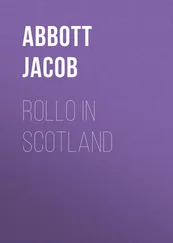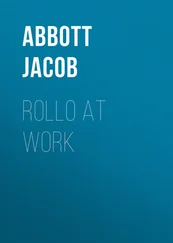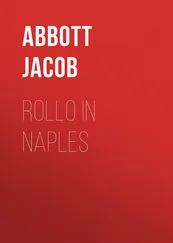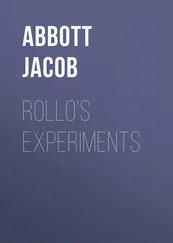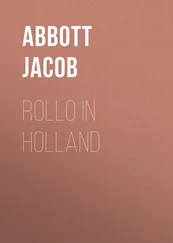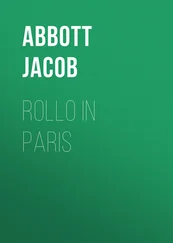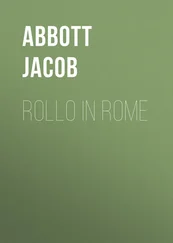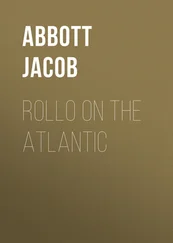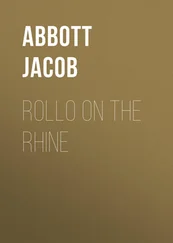Jacob Abbott - Rollo in London
Здесь есть возможность читать онлайн «Jacob Abbott - Rollo in London» — ознакомительный отрывок электронной книги совершенно бесплатно, а после прочтения отрывка купить полную версию. В некоторых случаях можно слушать аудио, скачать через торрент в формате fb2 и присутствует краткое содержание. Жанр: foreign_children, literature_19, foreign_antique, foreign_prose, на английском языке. Описание произведения, (предисловие) а так же отзывы посетителей доступны на портале библиотеки ЛибКат.
- Название:Rollo in London
- Автор:
- Жанр:
- Год:неизвестен
- ISBN:нет данных
- Рейтинг книги:3 / 5. Голосов: 1
-
Избранное:Добавить в избранное
- Отзывы:
-
Ваша оценка:
- 60
- 1
- 2
- 3
- 4
- 5
Rollo in London: краткое содержание, описание и аннотация
Предлагаем к чтению аннотацию, описание, краткое содержание или предисловие (зависит от того, что написал сам автор книги «Rollo in London»). Если вы не нашли необходимую информацию о книге — напишите в комментариях, мы постараемся отыскать её.
Rollo in London — читать онлайн ознакомительный отрывок
Ниже представлен текст книги, разбитый по страницам. Система сохранения места последней прочитанной страницы, позволяет с удобством читать онлайн бесплатно книгу «Rollo in London», без необходимости каждый раз заново искать на чём Вы остановились. Поставьте закладку, и сможете в любой момент перейти на страницу, на которой закончили чтение.
Интервал:
Закладка:
Jacob Abbott
Rollo in London
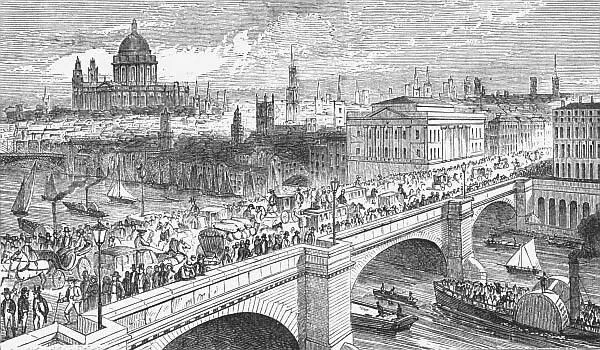
LONDON BRIDGE.
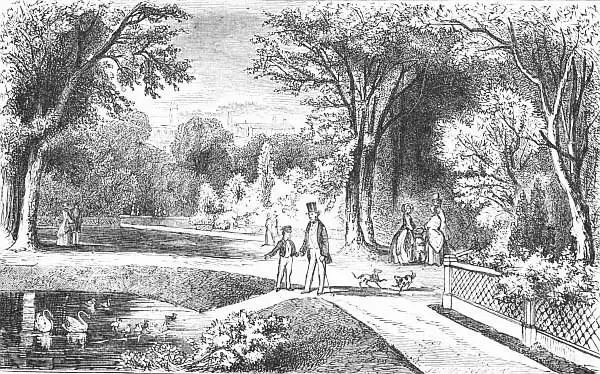
THE PARK. (See Chap. XI.) Конец ознакомительного фрагмента. Текст предоставлен ООО «ЛитРес». Прочитайте эту книгу целиком, купив полную легальную версию на ЛитРес. Безопасно оплатить книгу можно банковской картой Visa, MasterCard, Maestro, со счета мобильного телефона, с платежного терминала, в салоне МТС или Связной, через PayPal, WebMoney, Яндекс.Деньги, QIWI Кошелек, бонусными картами или другим удобным Вам способом.
Chapter I.
City and Town
"Which London shall we visit first?" said Mr. George to Rollo.
"Why," rejoined Rollo, surprised, "are there two of them?"
"Yes," said Mr. George. "We may almost say there are two of them. Or, at any rate, there are two heads to the monster, though the immense mass forms but one body."
While Mr. George was saying these words Rollo had been standing on the step of the railway car and looking in at the window towards his uncle George, who was inside. Just at this time, however, the conversation was interrupted by the sound of the bell, denoting that the train was about to start. So Rollo jumped down from the step and ran back to his own car, which was a second-class car, two behind the one where Mr. George was sitting. He had scarcely got to his seat before the whistle of the conductor sounded and the train began to move. As it trundled along out of the station, gradually increasing its speed as it advanced, Rollo sat wondering what his uncle meant by the double-headed character which he had assigned to the monstrous city that they were going to see.
What is commonly called London does in fact consist, as Mr. George had said, of two great cities, entirely diverse from each other, and completely distinct—each being, in its way, the richest, the grandest, and the most powerful capital in the world.
One of these twin capitals is the metropolis of commerce; the other is that of political and military power.
The first is called the City.
The second is called the West End.
Both together—with the immense region of densely-peopled streets and squares which connect and surround them—constitute what is generally called London.
The city was the original London. The West End was at first called Westminster. The relative position of these two centres may be seen by the following map:—
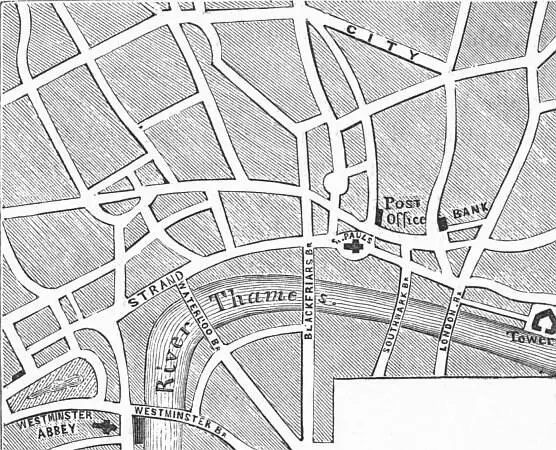
The city—which was the original London—is the most ancient. It was founded long before the days of the Romans; so long, in fact, that its origin is wholly unknown. Nor is any thing known in respect to the derivation or meaning of the name. In regard to Westminster, the name is known to come from the word minster , which means cathedral —a cathedral church having been built there at a very early period, and which, lying west of London as it did, was called the West Minster. This church passed through a great variety of mutations during the lapse of successive centuries, having grown old, and been rebuilt, and enlarged, and pulled down, and rebuilt again, and altered, times and ways without number. It is represented in the present age by the venerable monumental pile—the burial-place of the ancient kings, and of the most distinguished nobles, generals, and statesmen of the English monarchy—known through all the world as Westminster Abbey.
After a time, when England became at length one kingdom, the king built his palace, and established his parliament, and opened his court in Westminster, not far from the abbey. The place, being about three miles from the city, was very convenient for this purpose. In process of time public edifices were erected, and noblemen's houses and new palaces for the king or for other members of the royal family were built, and shops were set up for the sale of such things as the people of the court might wish to buy, and streets and squares were laid out; and, in fine, Westminster became gradually quite an extended and famous town. It was still, however, entirely distinct from London, being about three miles from it, farther up the river. The principal road from London to Westminster followed the margin of the water, and was called the Strand. Towards Westminster the road diverged from the river so as to leave a space between wide enough for houses; and along this space the great nobles from time to time built magnificent palaces around great square courts, where they could ride in under an archway. The fronts of these palaces were towards the road; and there were gardens behind them, leading down to the water. At the foot of the garden there was usually a boat house and a landing, where the people who lived in the palace or their friends could embark on board boats for excursions on the Thames.
In the mean time, while Westminster was thus becoming a large and important town, London itself, three miles farther down the river, was also constantly growing too, in its own way, as a town of merchants and artisans. Other villages, too, began to spring up in every direction around these great centres; and London and Westminster, gradually spreading, finally met each other, and then, extending on each side, gradually swallowed up these villages, until now the whole region, for five or six miles in every direction from the original centres, forms one mighty mass of streets, squares, lanes, courts, terraces, all crowded with edifices and thronged with population. In this mass all visible distinction between the several villages which have been swallowed up is entirely lost, though the two original centres remain as widely separated and as distinct as ever. The primeval London has, however, lost its exclusive right to its name, and is now simply called the city ; and in the same manner Westminster is called the West End, and sometimes the town ; while the name London is used to denote the whole of the vast conglomeration which envelops and includes the two original capitals.
The city and the West End, though thus swallowed, as it were, in the general metropolis, are still entirely distinct. They are in fact, in some respects, even more widely distinct from each other now than ever. Each is, in its own way, at the head of its class of cities. The city is the greatest and wealthiest mart of commerce in the world; while the West End is the seat and centre of the proudest and most extended political and military power. In fact, the commercial organization which centres in the city, and the military one which has its head quarters around the throne at the West End, are probably the greatest and most powerful organizations, each of its kind, that the world has ever known.
Mr. George explained all this to Rollo as they walked together away from the London Bridge station, where the train in which they came in from the south stopped when it reached London. But I will give a more detailed account of their conversation in the next chapter.
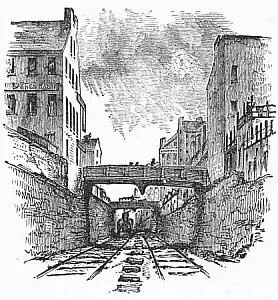
Chapter II.
Интервал:
Закладка:
Похожие книги на «Rollo in London»
Представляем Вашему вниманию похожие книги на «Rollo in London» списком для выбора. Мы отобрали схожую по названию и смыслу литературу в надежде предоставить читателям больше вариантов отыскать новые, интересные, ещё непрочитанные произведения.
Обсуждение, отзывы о книге «Rollo in London» и просто собственные мнения читателей. Оставьте ваши комментарии, напишите, что Вы думаете о произведении, его смысле или главных героях. Укажите что конкретно понравилось, а что нет, и почему Вы так считаете.
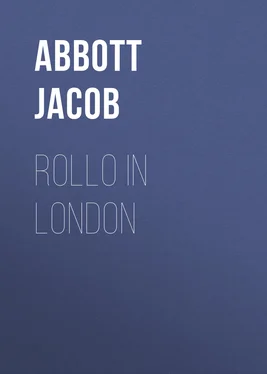
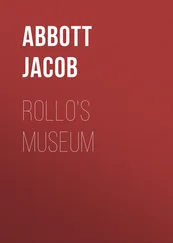
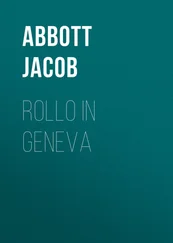
![Jacob Abbott - Rollo's Philosophy. [Air]](/books/717773/jacob-abbott-rollo-s-philosophy-air-thumb.webp)
